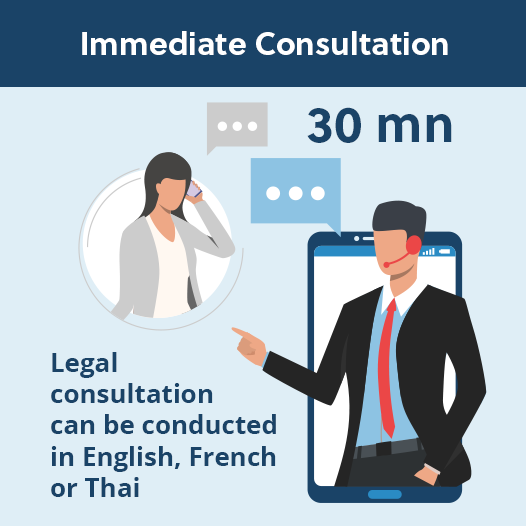legal
The metaverse is here to stay, what are some of the potential legal issues?
16/12/2021
There has been a lot of news and media attention focused on the ‘Web 3.0’ or ‘metaverse’. The metaverse is the next development on the ever growing blockchain and is essentially a shared digital environment where everyone can interact in a fully immersive and simulated experience.
The metaverse is beginning to break down the borders between digital environments and the physical world. Examples of this include, investors purchasing ‘land’, major brands such as Louis Vuiton and Adidas have opened stores for purchasing their goods, and even a wedding conducted and attended by guests, entirely within the metaverse.
There is the expectation that the metaverse could become a significant part of our lives in the near future. As it stands, OpenSea, an NFT marketplace has processed transactions of more than $3.3 billion in August alone.
What does the current Metaverse look like?
The metaverse is constantly evolving and we are currently seeing new cities appearing in which you can buy almost anything. For example, inhabitants of these cities can purchase land upon which you can build a property. This property can then be filled with pieces of art (i.e. NFTs the owner has purchased), and wear an outfit that has been supplied by a real world designer or shop. Concerts are also an attraction in the metaverse. To attend a concert, you have to purchase a ticket, which comes in the form of an NFT.
The Metaverse allows people to interact, make real transactions, own assets, build property and companies, create intellectual property (IP), as well as so much more.
What are some of the legal issues facing the widespread adoption of the metaverse?
The metaverse, much like real life, is subject to crime and a whole host of legal issues. These issues will require legal professionals and companies to have a presence in the metaverse to protect users and their interests.
There are currently several metaverses in existence with Decentraland (MANA), My neighbor Alice (ALICE), the Sandbox (SAND) and of course Facebook being the main players. There is currently a lot of discussion and debate as to whether there will be a universal set of rules and regulations for all the metaverses, or each having their own rules, much like independent countries.
Below you will find a breakdown of some of the more pressing legal issues that could be an issue in the metaverse.
Personal Data, Privacy and Cybersecurity
Privacy and data security are already a significant issue in the real world. The metaverse will be heavily reliant data and observers can expect to see even greater volumes being processed here. Some important questions which may need to be carefully considered:
Data and privacy – What data will be collected? How sensitive is it? Who owns or controls it? How will it be used? In a world where everything is done on the Blockchain, the sharing of data is impossible to avoid. Legal firms and law makers will need to consider how the collection, sharing and use of such data be regulated? For example, will existing laws or regulations (e.g. GDPR) govern the collection of data across the metaverse, or will a new set of laws/rules need to be established and agreed upon and who will do this? Furthermore, how will these laws/rules be managed and enforced within the metaverse?
NFTs
As mentioned above, all varieties of items and possessions will be available for purchase in the metaverse in the form of NFTs. The metaverse will consist of entire towns, cities, regions and countries, all requiring items and content to fill them. This means, we have only begun to see the very beginning of the commercialisation of the metaverse through NFTs. This in itself raises many questions, for example Who can purchase and trade within the metaverse? Will any license be required depending on the type of object or service? Who will regulate trades and valuations of transactions?
Antitrust
The development of the blockchain and metaverse is dependent on both large tech companies, and smaller independent programmers. How will it be possible to stop these larger companies from leveraging their position to assert unfair control in any virtual world?
Intellectual Property Issues
NFTs and digital assets will be subject to a whole host of IP issues such as infringement, licensing, IP protection and anti-piracy efforts, patent issues, joint ownership concerns and trademark issues. Ideally, any intellectual property rights will be subject to the whole of the metaverse. However, the metaverse is a virtual world with no physical borders or borders which have not been established or may change?) How could IP infractions be addressed and dealt with? Would a DMCA style safe harbour and takedown process need to be created for the metaverse? Or will there be some other kind of mechanism designed or created to deal with this.
These are just a few of the examples of the types of legal issues that may arise from the adoption of the metaverse. There is a big ongoing discussion relating to the legal regulation of the metaverse. Some groups are suggesting that there should be an attempt within every legal system to adapt their existing legal framework to co-exist with the metaverse, while others back the creation of an entirely new legal system which has been specially designed for the metaverse.
What does the future hold for the metaverse?
We have already started to see the migration of people and businesses to the metaverse, with recent examples of weddings and a community of lawyers within the metaverse highlighting this. It is more than likely that many other firms and businesses are going to turn their attention to the metaverse, in an attempt to become an early adopter and take advantage of what’s on offer.
The metaverse offers the potential for companies to open an office within the metaverse. This will allow their employees to work in an office environment without having to leave their home. In an age where lockdowns and working from home has become the norm, this could have huge benefits for companies who are missing out on the in person experience.
En conclusion
While the metaverse will continue to grow and become a large part of our lives, it does come with both pros and cons. The metaverse does offer great potential for sellers and investors alike, however, without a fully developed legal system in place, there are bound to be issues and teething pain.
If you are interested in learning more about how your business could get involved with the metaverse, why not book a Consultation with one of our Blockchain experts here.
Veuillez noter que cet article est fourni à titre d'information seulement et ne constitue pas un avis juridique.
Nos consultations durent jusqu'à 1 heure et sont menées par nos avocats experts en Blockchain qui parlent couramment l'anglais, le français et le thaï.
Les consultations peuvent être organisées sur WhatsApp ou sur le Logiciel de Vidéoconférence de votre convenance. Une consultation avec l’un de nos experts juridiques est sans aucun doute le meilleur moyen d’obtenir toutes les informations dont vous avez besoin et de répondre à toutes les questions que vous pourriez avoir sur votre nouvelle entreprise ou votre projet.
150 USD
Jusqu'à 1 heure
Paiement en ligne (Paypal ou carte bancaire)
Les consultations juridiques peuvent être menées en anglais, en français ou en thaï.
Les consultations juridiques sont assurées par des des avocats expérimentés dans les domaines concernés.
Abonnez-vous aujourd'hui
Abonnez-vous aujourd'hui
À notre newsletter pour les dernières actualités juridiques
en Asie du Sud-Est, les mises à jour de Belaws et
les offres spéciales sur nos services.
To our newsletter today for all the latest legal news in South East Asia,
Belaws updates and special promotions on our services.




